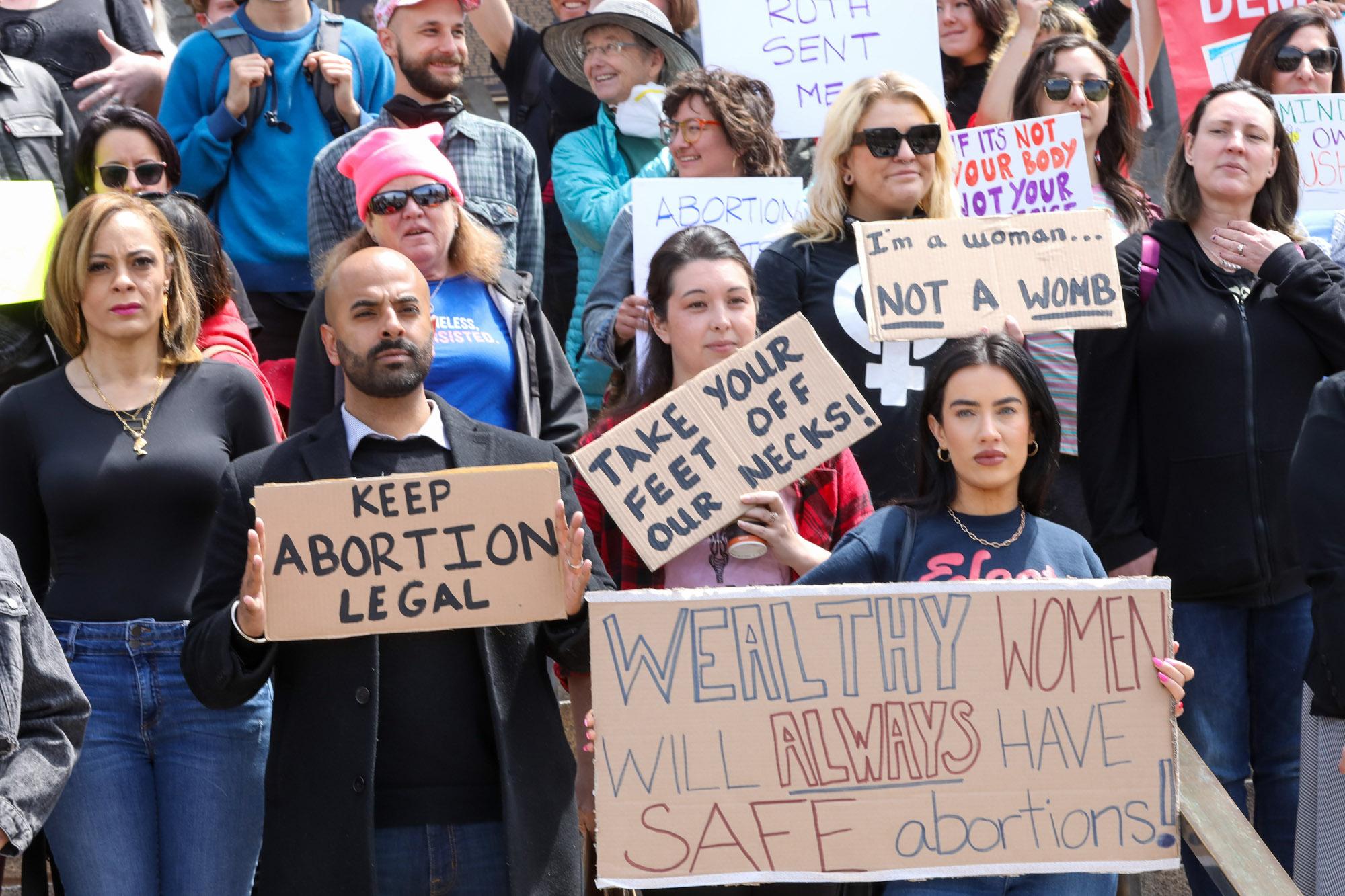
A leaked draft opinion seeming to signal that the U.S. Supreme Court is poised to overturn Roe v. Wade was published in Politico on Monday night. The opinion, written by Justice Samuel A. Alito Jr., drew a wide range of reactions across the political spectrum, and in Colorado, the response on both sides of the issue was to jump into action.
While the leaked draft does not represent the final decision of the court, some activists and Colorado Democrats expect the official ruling will be along the same lines. The draft opinion does not include a federal ban, instead leaving the decision on whether to allow or restrict abortion care to states.
Earlier this year, Colorado lawmakers passed the Reproductive Health Equity Act, in anticipation that the Supreme Court would reverse Roe v. Wade. The law ensures people will still have access to abortion care in the state.
Karen Middleton, the president of Cobalt, a non-profit organization dedicated to abortion access and reproductive rights in Colorado, said the news is mobilizing her organization for activism.
“I have been planning for months, believing that this [would be] the outcome,” she said.
Middleton said there is more to be done. Her organization will be fighting for a constitutional amendment in 2024 that would get rid of the ban on state funding being used for abortion.
“One of the largest barriers for people who want to access abortion is cost,” she said. “Low-income people, people of color, immigrants have a lot of trouble accessing abortion care … also if you’re a state employee, you might not be able to have abortion included in your insurance plan.”
The leaked opinion has emboldened abortion-rights opponents. Jeff Hunt from Colorado Christian University’s Centennial Institute, said that his organization will continue to fight on a state level and plans to sue over Colorado’s Reproductive Health Equity Act law.
“It does not bode well for laws when you specifically carve out rights against a class of people,” Hunt said. “So, if you say a class of people — in this case, the preborn — do not have rights in the state, that does not work well in constitutional law. And we may challenge it there.”
Abortion-rights opponents are trying to bring the issue before Colorado voters this year. Angela Eicher and Rebecca Greenwood want to put Initiative No. 56 on the ballot for this year’s midterm elections, which would make abortion illegal.
Middleton doesn’t think that ballot initiative will go anywhere.
“I believe that public support is with us,” she said. “They will see this for what it is: an attempt to ban abortion in a state that has consistently said no, and it will be defeated. It will also be a way for us to organize as we move toward 2024.”
Amid the possibility that the Supreme Court could reverse Roe v. Wade and the increasing restrictions on abortion care in neighboring states, people seeking care will likely continue to travel to Colorado.
Hunt sees that influx of patients as an opportunity to dissuade people from getting abortions.
“How are we going to serve those women that are coming in to encourage them not to abort their child,” he said. And “maybe look at alternatives to Planned Parenthood?”
For Middleton, the leaked draft opinion is simply confirmation of something she and her organization have been preparing for.
“We believe we need to protect reproductive rights over the long haul,” she said. “Yes, this is a setback, but it is not a complete setback at least for Colorado.”
Editor's note: An earlier version of this story incorrectly called Angela Eicher and Rebecca Greenwood state representatives, when they are not members of the Colorado General Assembly.








